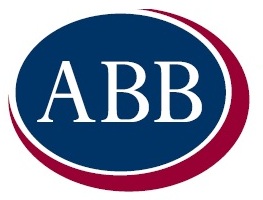When a client thinks of hiring legal counsel to work on his or her behalf, thoughts of a lawyer in court objecting with conviction to everything said by the opposing party may come to mind. Hollywood movies such as The Rainmaker, A Few Good Men and many others would lead one to believe that this is “good advocacy.”
In reality, over 90% of cases in Ontario’s civil court system never make it to trial. This not only means that lawyers in Ontario have found ways to settle disputes outside of court, but it also means that lawyers across the province have suffered from a gradual decline in opportunities to be told by witnesses that they “can’t handle the truth.”
One of the tools often used to settle disputes out of court is mediation. Mediation is a consensual meeting between all of the interested parties in a dispute and a neutral third-party known as a “mediator.” The mediator is not a judge and has no power to ultimately decide or rule on the matter. Instead, the mediator’s role is to assist the parties in arriving at a fair and meaningful settlement. Mediation is but one of several commonly known processes under the umbrella of Alternative Dispute Resolution (ADR). Other well-known ADR processes include negotiation and arbitration.
Given that the mediator is more of a facilitator than a judge, one of the keys to a successful mediation is the impartiality of the mediator. In most cases, impartiality is built into the process from the beginning because the mediator will have been selected by the mutual agreement both parties. Since any sign of favoritism could undermine the legitimacy of the mediator and the effectiveness of the mediation itself, good mediators are careful to ensure there is no perception of bias both before and during the mediation.
Techniques used will vary depending on the mediator’s own past experiences and training, but generally mediators use communication strategies that are designed to elicit information from the parties, keep them focused on settlement and help each side understand the strengths and weaknesses of its own case.
The entire mediation is conducted on a without prejudice basis. This means that nothing a party says during the mediation can be used in proceedings outside the mediation. Everything anyone says is treated as strictly confidential. The without prejudice nature of the mediation helps to facilitate open dialogue between the parties and encourages creative settlement solutions.
In terms of the progression of the mediation itself, the mediator will generally open with a statement outlining the structure of the mediation and will provide a general summary of the dispute. If it has not already been done, the mediator will also ask the parties to sign a mediation agreement.
Next, the mediator will typically go around the table giving each party the opportunity to make a statement. During this time, the mediator will generally ask that no one interrupt the speaker. This ensures that each person has the chance to say what they want while everyone else is listening. Sometimes, just having the opportunity to openly state one’s position to the other side is enough to get parties moving towards settlement.
Once everyone has been heard, the mediator will often summarize the interests and positions of the parties. At this stage, the mediator may also provide the parties with some objective feedback regarding the strengths and weaknesses of the parties’ respective positions in hopes of moving them closer to settlement.
Often the mediator will then split the parties by asking them to go into separate rooms. This process is known as “caucusing.” At this stage the mediator takes on the role of messenger, shuttling information and settlement offers between the rooms. Some mediators will take an aggressive approach during caucusing, offering advice to each party about what they think it will take to settle the case. Others will take a more passive approach, acting merely as conveyors of information.
While mediation may not be as glamorous as court, it has its benefits. Legal fees are often substantially lower if a matter can be settled at an early stage. Much of the stress and anguish which often accompanies lengthy litigation can be avoided through a mediated settlement. In addition, since mediation allows the parties to arrive at a settlement collectively, these settlements are more likely than judge-made orders to be adhered to by the parties and ultimately stand the test of time.
While trials are certainly better fodder for Hollywood and primetime, mediation has become a critical tool for dispute resolution in Ontario.
 [The above article is for general informational purposes only and is not legal advice. If you live in the Ottawa area and would like advice about a legal issue please email us or call 613-569-9500 to speak with one of our lawyers or a member of our staff.]
[The above article is for general informational purposes only and is not legal advice. If you live in the Ottawa area and would like advice about a legal issue please email us or call 613-569-9500 to speak with one of our lawyers or a member of our staff.]